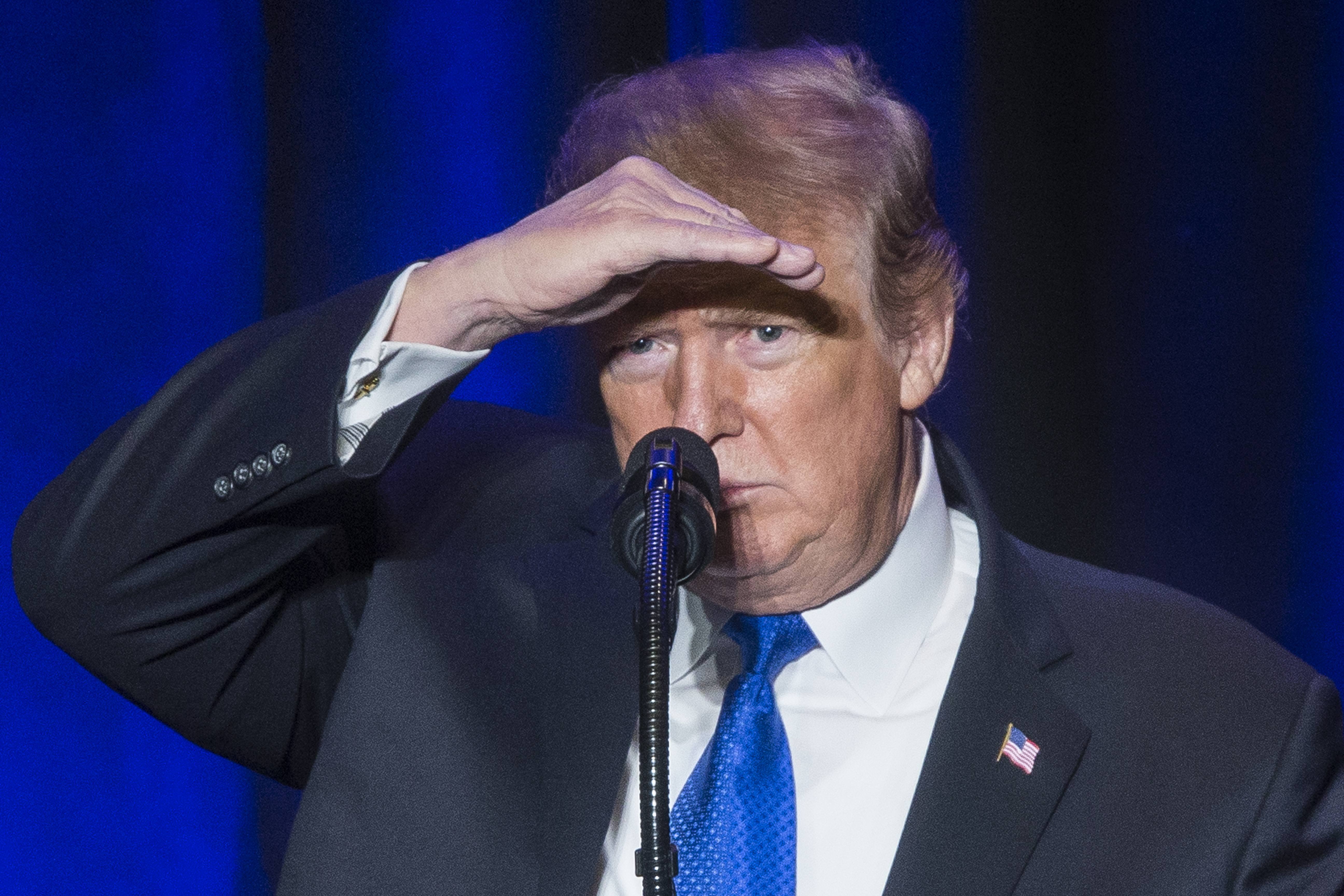Trump says he's declaring a national emergency and will reportedly redirect more than $6 billion for the border


A free daily email with the biggest news stories of the day – and the best features from TheWeek.com
You are now subscribed
Your newsletter sign-up was successful
President Trump made it official Friday: he is declaring a national emergency over the border.
Trump also said he will seek to direct as much as $8 billion for the border, with White House acting Chief of Staff Mick Mulvaney telling reporters $600 million will come from the Treasury Department's drug forfeiture fund, $2.5 billion will come from the Department of Defense's drug interdiction program, and another $3.6 billion will come from military construction funding, per The Washington Post.
The White House had previously announced that Trump would sign Congress' shutdown-averting deal, which provides $1.3 billion for border fencing but not $5.7 billion in wall funding like Trump wanted, while at the same time declaring a national emergency to obtain the rest of the money. "It's a great thing to do," Trump said Friday of his national emergency declaration.
The Week
Escape your echo chamber. Get the facts behind the news, plus analysis from multiple perspectives.

Sign up for The Week's Free Newsletters
From our morning news briefing to a weekly Good News Newsletter, get the best of The Week delivered directly to your inbox.
From our morning news briefing to a weekly Good News Newsletter, get the best of The Week delivered directly to your inbox.
Trump's idea of declaring a national emergency is highly controversial even among Republicans, who fear the precedent it will set and warn that a future Democratic president could take similar action over one of their policy priorities. "A future president may use this exact same tactic to impose the Green New Deal," Sen. Marco Rubio (R-Fla.) said Thursday, per the Tampa Bay Times.
Congress could theoretically pass a joint resolution to terminate Trump's national emergency declaration. But both the House and the Senate would need supermajorities in order to override a presidential veto of this resolution, The New York Times reports, adding that it's "highly unlikely" enough Republican support exists for this step to be taken.
A free daily email with the biggest news stories of the day – and the best features from TheWeek.com
Brendan worked as a culture writer at The Week from 2018 to 2023, covering the entertainment industry, including film reviews, television recaps, awards season, the box office, major movie franchises and Hollywood gossip. He has written about film and television for outlets including Bloody Disgusting, Showbiz Cheat Sheet, Heavy and The Celebrity Cafe.
-
 House votes to end Trump’s Canada tariffs
House votes to end Trump’s Canada tariffsSpeed Read Six Republicans joined with Democrats to repeal the president’s tariffs
-
 Bondi, Democrats clash over Epstein in hearing
Bondi, Democrats clash over Epstein in hearingSpeed Read Attorney General Pam Bondi ignored survivors of convicted sex offender Jeffrey Epstein and demanded that Democrats apologize to Trump
-
 El Paso airspace closure tied to FAA-Pentagon standoff
El Paso airspace closure tied to FAA-Pentagon standoffSpeed Read The closure in the Texas border city stemmed from disagreements between the Federal Aviation Administration and Pentagon officials over drone-related tests
-
 Judge blocks Trump suit for Michigan voter rolls
Judge blocks Trump suit for Michigan voter rollsSpeed Read A Trump-appointed federal judge rejected the administration’s demand for voters’ personal data
-
 US to send 200 troops to Nigeria to train army
US to send 200 troops to Nigeria to train armySpeed Read Trump has accused the West African government of failing to protect Christians from terrorist attacks
-
 Grand jury rejects charging 6 Democrats for ‘orders’ video
Grand jury rejects charging 6 Democrats for ‘orders’ videoSpeed Read The jury refused to indict Democratic lawmakers for a video in which they urged military members to resist illegal orders
-
 Judge rejects California’s ICE mask ban, OKs ID law
Judge rejects California’s ICE mask ban, OKs ID lawSpeed Read Federal law enforcement agents can wear masks but must display clear identification
-
 Lawmakers say Epstein files implicate 6 more men
Lawmakers say Epstein files implicate 6 more menSpeed Read The Trump department apparently blacked out the names of several people who should have been identified



